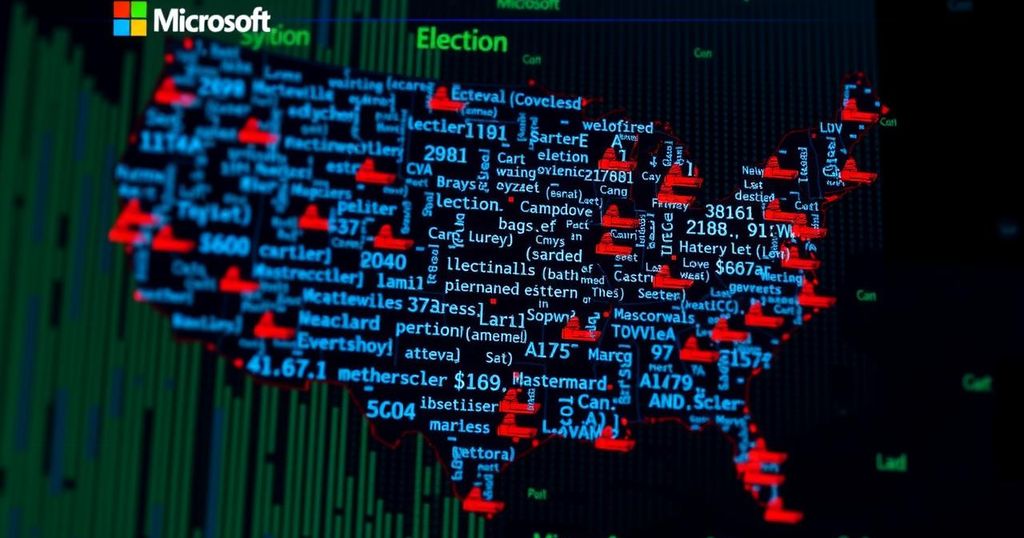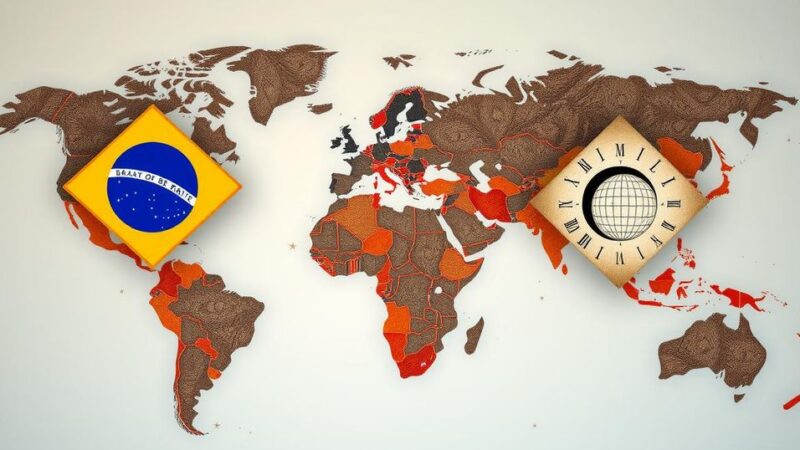Iranian government-linked hackers have conducted reconnaissance on U.S. election-related websites in key swing states, as reported by Microsoft. There is growing concern regarding foreign interference in the upcoming presidential election, although no attempts to hack systems have been confirmed. The activities raise alarms about the potential for disinformation campaigns and efforts to undermine public confidence in voting.
According to a recent report by Microsoft, Iranian hackers, allegedly linked to the government, have conducted extensive research and probing of election-related websites in key swing states across the United States. This activity appears to be part of a broader effort to uncover vulnerabilities that could potentially affect the integrity of the upcoming presidential election. While this probing took place in April, Microsoft analysts have only now identified these actions. Additionally, these hackers engaged in reconnaissance activities targeting major U.S. media outlets in May. U.S. intelligence agencies have expressed concern regarding Iran’s attempts to induce discord during the 2024 election cycle. This is evidenced by specific hacking efforts directed at the campaign of former President Donald Trump, as well as efforts to spur protests against U.S. policies regarding Israel. In their report, Microsoft analysts predict an uptick in the activities of the Iranian hacking group, known as “Cotton Sandstorm,” as the election date approaches, citing their previous operational patterns and history of interference in electoral processes. They emphasize, however, that there is currently no evidence suggesting that the Iranian hackers have escalated their activities to actual hacking attempts on targeted websites, which typically involves seeking vulnerabilities rather than direct hacks. As a result, the integrity of the voting process remains intact due to existing safeguards. The report raises alarms among U.S. officials and analysts regarding the potential for foreign-backed efforts to manipulate public perception surrounding voting integrity. There is a recognized risk that hackers could disseminate publicly available voter registration data to create the illusion of access to more sensitive electoral data. This revelation follows earlier reports indicating that Russian operatives are employing viral audio content to disseminate disinformation about candidates, and there is a growing fear that both Russia and Iran may employ further disinformation strategies aimed at inciting violence in the period between Election Day and the final vote certification. Microsoft has also noted that while China’s efforts to influence the election are not yet perceived as coordinated, various social media campaigns targeting local and Congressional races are occurring, implicating evidence of aggressive posturing against certain Senate and House candidates. Chris Krebs, former head of the Cybersecurity and Infrastructure Security Agency, echoed concerns regarding the potential for ineffective foreign interference initiatives to create disarray; he stated, “I agree with the assessment that we should expect to see more out of Iran, even if it’s hapless and ineffective like their 2020 efforts.” He warned the American electorate to prepare for a tumultuous information environment ahead.
The topic of this article pertains to the growing security concerns surrounding the integrity of U.S. elections, particularly in light of foreign interference from nation-state actors like Iran. The evidence presented indicates that these actors have historically engaged in activities aimed at undermining public confidence in the electoral process. The analysis from Microsoft is regarded as significant within the larger context of ongoing geopolitical tensions that entail cyber warfare and cyber espionage. Understanding the implications of such activities is imperative as the 2024 presidential election approaches, especially concerning the safeguarding of democratic processes and public perception.
In conclusion, the ongoing efforts of Iranian hackers to probe U.S. election-related websites signal a concerning trend of foreign interference in electoral processes. While current actions have not escalated to direct hacking attempts, the potential ramifications on public trust and electoral integrity are significant. Cybersecurity experts and government officials continue to monitor these developments closely, urging voters to remain vigilant amid a potentially chaotic information environment leading up to the election.
Original Source: www.cnn.com







